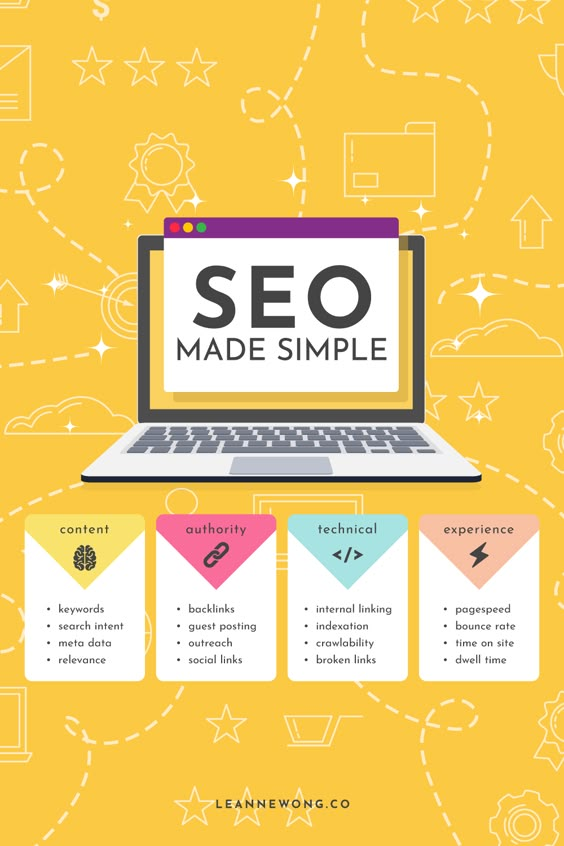10 Proven SEO Strategies for Rapid Website Growth
Introduction
In today's digital landscape, a website's visibility on search engines can make or break its success. Search Engine Optimization (SEO) is the key to improving your website's ranking on search engine result pages (SERPs) and attracting organic traffic. To achieve rapid website growth, it's essential to implement effective SEO strategies that align with search engine algorithms. In this blog post, we'll explore ten proven SEO strategies that can help your website experience rapid growth and increase its online presence.
- Conduct In-Depth Keyword Research.
The foundation of any successful SEO campaign is thorough keyword research. Utilize tools like Google Keyword Planner, SEMrush, or Ahrefs to identify relevant keywords and phrases that resonate with your target audience. Focus on high-traffic keywords with moderate to low competition. Integrating these keywords strategically throughout your content will enhance your website's visibility on search engines and attract the right visitors.
- Create High-Quality and Engaging Content.
Content remains king in the world of SEO. Create valuable, informative, and engaging content that addresses the needs and interests of your target audience. When your content offers genuine value, visitors are more likely to spend time on your site, reducing bounce rates and increasing the chances of conversion. High-quality content also increases the likelihood of other websites linking to your pages, a crucial factor in boosting your website's authority.
- Optimize On-Page Elements.
On-page optimization ensures that search engines can easily understand the content and purpose of your web pages. Optimize meta tags, headings, URL structures, and alt tags for images with relevant keywords. Craft compelling meta titles and descriptions that encourage users to click through to your website. Additionally, organize your content using headings (H1, H2, H3) to improve readability and user experience.
- Prioritize Mobile-Friendly Design.
With a significant portion of internet users accessing websites through mobile devices, mobile-friendliness has become a critical ranking factor. Ensure that your website is responsive and adapts seamlessly to various screen sizes. Mobile optimization not only improves search rankings but also enhances user experience, leading to higher engagement and conversions.
- Boost Page Loading Speed.
Page speed directly impacts user experience and SEO. A slow-loading website can frustrate visitors and result in higher bounce rates. Compress images, leverage browser caching, and minimize server response times to improve your website's loading speed. Google rewards faster websites with better rankings, making this an essential strategy for rapid growth.
- Build High-Quality Backlinks.
Backlinks, or inbound links from other websites, are vital for SEO success. Focus on acquiring high-quality backlinks from authoritative and relevant websites in your industry. Natural backlinks signal to search engines that your content is valuable and trustworthy, leading to improved rankings.
- Enhance User Experience (UX).
A positive user experience is a crucial aspect of SEO. Ensure that your website is easy to navigate, visually appealing, and intuitive. Optimize your website's architecture to help users find the information they need effortlessly. An improved UX leads to longer dwell times and increased user engagement, both of which are favorable ranking factors.
- Leverage Social Media Promotion.
Social media platforms play a significant role in driving traffic to your website and improving brand visibility. Share your content across various social media channels to reach a broader audience. Engage with your followers, respond to comments, and encourage social sharing to amplify your content's reach. Social signals indirectly impact your search rankings, making social media an integral part of SEO.
- Optimize for Local SEO.
If your business has a physical location, prioritize local SEO strategies. Claim your Google My Business listing and ensure that your NAP (Name, Address, Phone number) information is accurate and consistent across the web. Local SEO helps your website appear in local search results, making it easier for potential customers to find your business.
- Monitor and Analyze Performance.
Regularly monitor your website's performance using tools like Google Analytics and Google Search Console. Analyze key metrics such as organic traffic, bounce rates, and conversion rates. Use this data to identify trends, strengths, and areas for improvement. Continuously adjust your SEO strategies based on insights gained from the data to maintain rapid website growth.
Conclusion.
Implementing these ten proven SEO strategies can significantly impact your website's growth and visibility in search engine results. Remember that SEO is an ongoing process that requires dedication and adaptation to the ever-evolving digital landscape. By providing high-quality content, optimizing on-page elements, and enhancing user experience, you can attract organic traffic, build authority, and achieve rapid website growth over time. Stay proactive, keep up with SEO trends, and watch your website soar to new heights of success.

